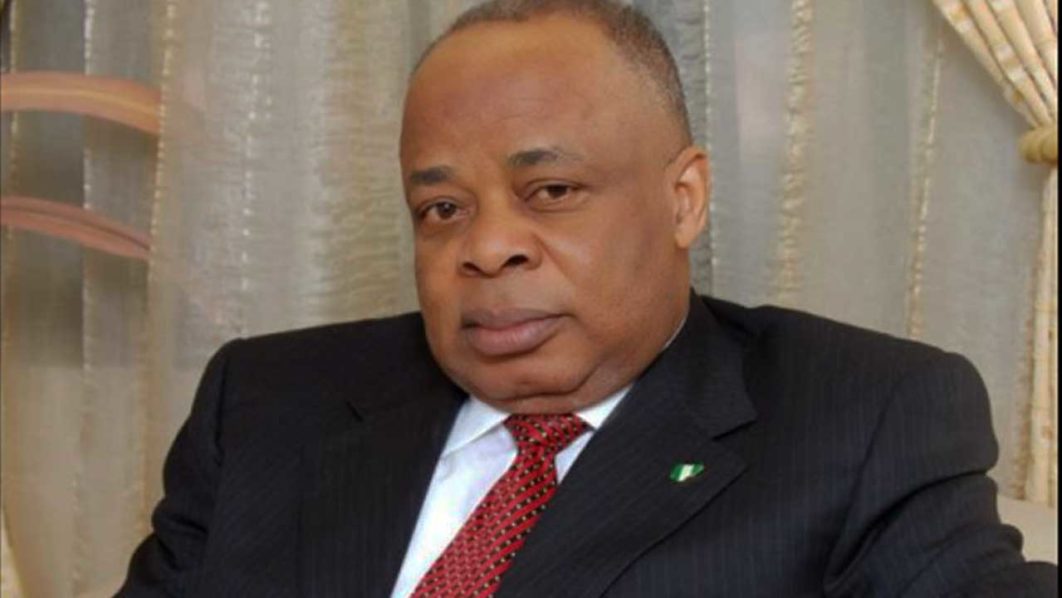
Nigerians must battle political corruption because it is a more damaging and insidious form of corruption, says former Senate President Ken Nnamani in a new book on the failed Third Term amendment bill. Senator Nnamani was the Senate President when the infamous attempt to amend the constitution and provide a third term for the president was defeated on the floor of the Senate in 2006, despite the weight thrown around by the Presidency to have the amendment bill passed.
In his just-released autobiography due for launch in Abuja on October 21, Senator Nnamani detailed the influence of money to sway the lawmakers, pointing out that a corruption of process is as damaging to a society, if not more, than the stealing of public funds. He wrote, “Often, when people talk about corruption what comes to mind are the mindboggling sums of money misappropriated or stolen in government and state owned institutions. Some of the more common dimensions include bribery, contract manipulation, budget scams, embezzlements and the like. Yet the problem of corruption is much deeper than these.
It extends to some tendencies that have become so normal that many people no longer realise that they are elements of corruption; tendencies that are now rationalised as part of the system and excused as inevitable…I am talking of the corruption of processes and institutions for sectional gain, whether of ego, material benefits or group benefits and political corruption. These are potent problems that have dogged this country for many decades and still do. Yet, a more insidious form of corruption that’s often neglected in the debates on corruption in Nigeria is the corruption of the principle of separation of powers and the mutual respect for the independence of the branches of government.”
Nnamani sails the control of the other arms of government by the executive is one of the worst forms of corruption because it robs them of the independence to make informed decisions for the benefit of society. In his words, “The principle of separation of powers recognizes the independence and interdependence, and not the subordination of one branch of government to the other. This ensures that the one branch of government does not become a stooge to the other and corrupt the basic principle of separation of powers. So, the manipulation of a branch of government by another is corruption of the democratic standard. This form of political corruption deserves distinct appreciation because the principle of separation of powers is the fundamental law, the state equivalent of Newton’s law of gravity, upon which rests the rule of law and the stability of the social system. Yet, this form of corruption goes on repeatedly at the national and state levels of government as the executive branch, awash with the tools of inducement and coercion, always seeks to interfere in the activities and define the agenda of the legislature as a means to having easy passage.”
Describing the corruption that went on during the amendment process, the former senate President was categorical that there were clear attempts to buy the votes of lawmakers to pass the amendment bill. He also challenged claims by President Olusegun Obasanjo that he had no hand in the attempt to amend the constitution to give him more years in office, when he was already rounding up his second term in office. “What was sad about the experience during the tenure extension debates was that the very pulpit from which the anti-corruption mantra rang forth was the same Augean stables that the god of corruption sent forth its sacrifices for cleansing.”
The book, Standing Strong: Legislative Reforms, Third Term and Other Issues of the 5th Senate, also details the forces and intrigues that led to Nnamani’s emergence as Senate president in spite the attempts by government forces its allies to have a more amenable person elected, his turbulent relationship with then Enugu State governor Dr. Chimaroke Nnamani, the cash-for-votes scandal in the Senate, and the clandestine meetings that were held to push the Third Term agenda.



